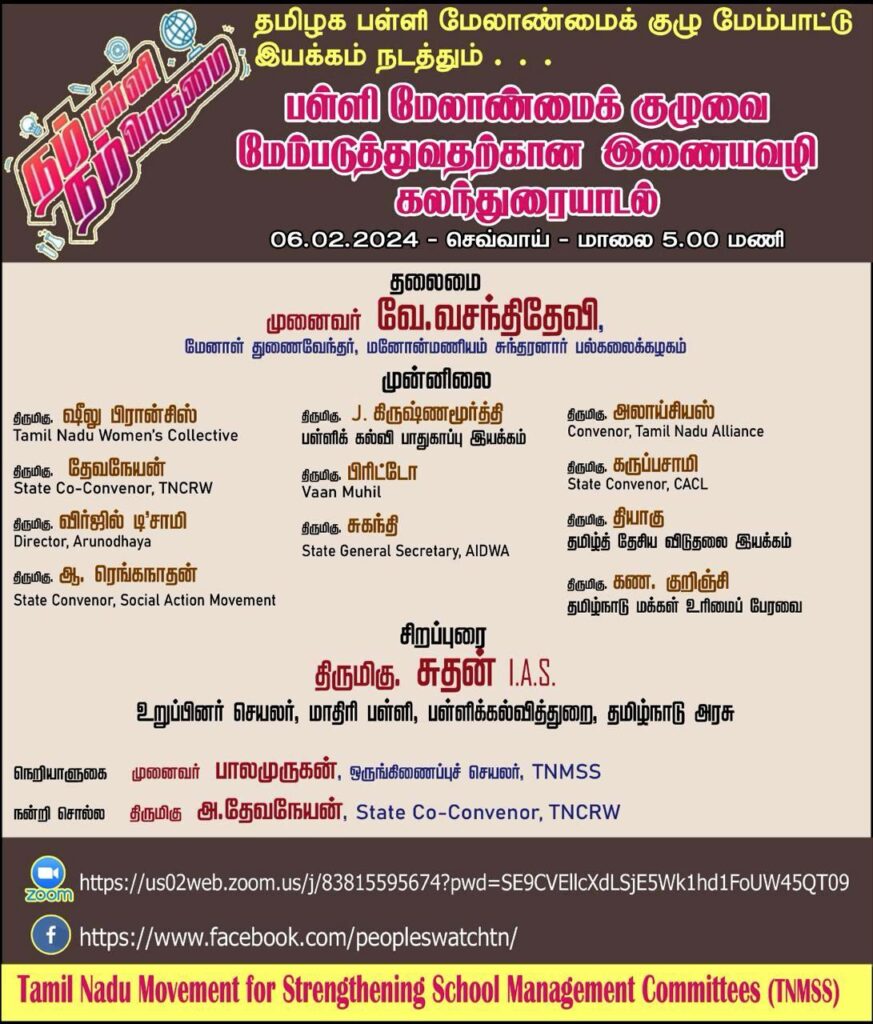Vaan Muhil is a rights based organization, started in 1995, to empower the marginalized communities/ groups for equitable and inclusive growth. It has been focusing on: human rights education; action researches on rights of the vulnerable sections; building resources and disseminating the same to the public; capacity building for leaders of communities and civil society groups, making legal interventions and meaningful engagements with policy makers and elected representatives.
VISION
Envisions a just and humane social order: Where all individuals and groups enjoy their fundamentals rights; Where all have equitable access to resources; Where enlightened citizens meaningfully participate in the democratic governance and decision making processes; Where sustainable development process is pursued; Where diversity and pluralism are valued.
MISSION
Vaan Muhil takes up initiatives and strategies to empower and mainstream the vulnerable communities through a process of inform-enable-collective action’; facilitates communities to discuss, prioritize, decide, access and control on all that concern their development; follows multi-stakeholder approach and multipronged strategies such as Mobilizing Communities, Taking up Community Based Development Interventions, Public Education Programmes, Action Research and documentation and meaningful engagements with policy makers and elected representatives.
OBJECTIVES
- To develop human rights culture through training programmes for college students, youth, women, teaching community and development agencies.
- To engage in public education programmes to highlight key rights issues and building public opinion on the issues.
- To undertake innovative community based programmes that will ensure socio economic development and make people partakers in the development processes
- To conduct capacity building and skill development programmes to increase the livelihoods and employability of rural youth.
- To initiate student support programmes for developing the potentials of poor students so that they continue their studies
- To conduct seminars and conferences on important issues so that public discussions and debate could be carried forward towards making pro poor policies.
- To forge networks and alliances to jointly work towards effecting changes at the macro level in the policies and programmes.
TARGET GROUPS
- Children
- Rural Youth
- Victims of human rights violations
- Working Adolescent girls
- Migrant Workers
- Unorganized Sector
- Civil Society groups
- Elected local body members


